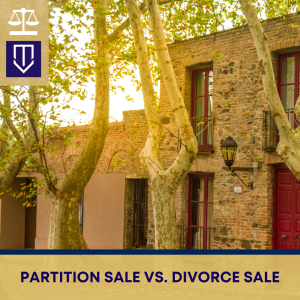 Often, the question of distributing rent earned on a co-owned property arises in the context of cotenants. Cotenants have equal rights to possess their property with their fellow cotenants. This means that no one cotenant can exclude another from the property. One cotenant can, however, assign their right of possession to a third party.
Often, the question of distributing rent earned on a co-owned property arises in the context of cotenants. Cotenants have equal rights to possess their property with their fellow cotenants. This means that no one cotenant can exclude another from the property. One cotenant can, however, assign their right of possession to a third party.
This can happen when a cotenant rents out part of the property to a tenant. In this situation, the other cotenants still have the right to possess the property, but they do not have a right to exclude the tenant. The tenant is also prohibited from excluding the other cotenants from occupying the property.
How can a cotenant lease property they co-own?
 California Partition Law Blog
California Partition Law Blog


 Yes. California law allows a co-owner to take out a mortgage without the other co-owners consent or knowledge.
Yes. California law allows a co-owner to take out a mortgage without the other co-owners consent or knowledge.  Partitions sales and divorce sales are two different ways that a property can be sold. One difference between the two is that in a partition sale, the court usually decides the proportion of ownership and how the proceeds are distributed among the owners, while in a divorce sale, the court generally must divide the property equally. Another difference is that the divorce sale process is similar to a normal real estate sale. Both sales can be determined informally among the parties or ordered by a court.
Partitions sales and divorce sales are two different ways that a property can be sold. One difference between the two is that in a partition sale, the court usually decides the proportion of ownership and how the proceeds are distributed among the owners, while in a divorce sale, the court generally must divide the property equally. Another difference is that the divorce sale process is similar to a normal real estate sale. Both sales can be determined informally among the parties or ordered by a court.  There are two common ways an individual can own property: (1) as a tenant in common or (2) as a joint tenant. In California, there is a presumption that the co-owners of a piece of property are tenants in common unless the deed expressly states that the co-owners are joint tenants.
There are two common ways an individual can own property: (1) as a tenant in common or (2) as a joint tenant. In California, there is a presumption that the co-owners of a piece of property are tenants in common unless the deed expressly states that the co-owners are joint tenants.  In every property co-owned by two or more persons, there are common costs. Common costs are those costs for the property that are common to all owners or for the common benefit of all owners. In California, cotenants are required to pay for their portion of the common costs. Therefore, cotenants must pay for their share of expenses to operate and maintain the property. The portion of common costs one must pay depends on the ownership interest of that cotenant.
In every property co-owned by two or more persons, there are common costs. Common costs are those costs for the property that are common to all owners or for the common benefit of all owners. In California, cotenants are required to pay for their portion of the common costs. Therefore, cotenants must pay for their share of expenses to operate and maintain the property. The portion of common costs one must pay depends on the ownership interest of that cotenant. Generally, a co-owner of real property may commence an action in a partition. Owners of an estate of inheritance, a life estate, or an estate for years who hold such interest concurrently or in successive estates may seek to
Generally, a co-owner of real property may commence an action in a partition. Owners of an estate of inheritance, a life estate, or an estate for years who hold such interest concurrently or in successive estates may seek to 
 Following the explosive split between the two stars in the hit reality show, “Vanderpump Rules,” many are left wondering what will become of the couple’s $2.2 million dollar home. Prior to their split, Ariana Madix and Tom Sandoval bought a farmhouse-style home in 2019 and took their time to renovate the Property into their dream home.
Following the explosive split between the two stars in the hit reality show, “Vanderpump Rules,” many are left wondering what will become of the couple’s $2.2 million dollar home. Prior to their split, Ariana Madix and Tom Sandoval bought a farmhouse-style home in 2019 and took their time to renovate the Property into their dream home. 
 Yes, although the tenant is not allowed to exclude the non-consenting owners. The reason for this is grounded in ancient legal doctrine regarding the “right to possession” that all co-owners of property share together. Each owner may exercise this right, and each may grant it to a third party, should they so choose, even without the consent of the other owners.
Yes, although the tenant is not allowed to exclude the non-consenting owners. The reason for this is grounded in ancient legal doctrine regarding the “right to possession” that all co-owners of property share together. Each owner may exercise this right, and each may grant it to a third party, should they so choose, even without the consent of the other owners.